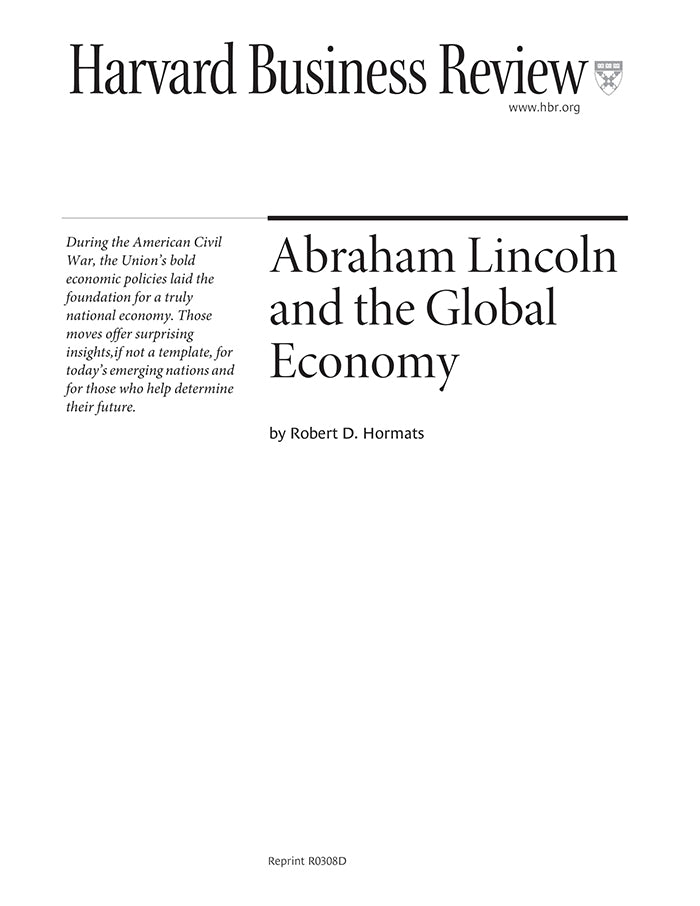Abraham Lincoln and the Global Economy
受取状況を読み込めませんでした
Abraham Lincoln would have well understood the challenges facing many modern emerging nations. In Lincoln's America, as in many developing nations today, sweeping economic change threatened older industries, traditional ways of living, and social and national cohesion by exposing economies and societies to new and powerful competitive forces. Yet even in the midst of the brutal and expensive American Civil war--and in part because of it--Lincoln and the Republican Congress enacted bold legislation that helped create a huge national market, a strong and unified economy governed by national institutions, and a rising middle class of businessmen and property owners. Figuring out how to maximize the benefits of globalization while minimizing its disruptions is a formidable challenge for policy makers. How do you expand opportunities for the talented and the lucky while making sure the rest of society doesn't fall behind? It may be helpful to look at the principles that informed the policies that Lincoln and the Republican Congress instituted after they came to power in 1861: Facilitate the upward mobility of low- and middle-income groups to give them a significant stake in the country, emphasize the good of the national economy over regional interests, affirm the need for sound government institutions to temper the dynamics of the free enterprise system, tailor policies to the national situation, and realize that a period of turmoil may present a unique opportunity for reform. These principles drove the reforms that helped Americans cope with and benefit from rapid technological advances and the fast integration of the American economy in the 19th century. They may be instructive to today's policy makers who are struggling to help their own citizens integrate into the fast-changing global economy of the 21st century.
【書誌情報】
ページ数:16ページ
サイズ:A4
商品番号:HBSP-R0308D
発行日:2003/8/1
登録日:2012/3/28


